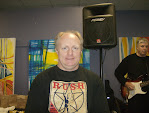1. Always be prepared for anything that will happen at a gig. Plan to have tools and accessories onhand that will allow you to do the best job you can on all gigs.
2. Make contact with the band or artist before the gig date. Take some time to call or email the band or artist contact to find out all the technical requirements for the show. A stage plot, an input list, and technical rider will be a sound person's best friend during pre-production for any given show.
3. When you arrive at the venue where the sound system is provided, make sure that all parts of the systems are turned on and working correctly. Next proceed with running mics and lines onstage and setting monitors into the correct position as per the stage plot. If you are set up and ready to go before band arrives then you will have more time for the sound check before the show.
4. If you are working a gig with one or two opening acts to the main band then, set up and sound check the main band first. Then set up and sound check the opening acts last. Make notes of changes to mic levels, EQ settings, etc. if all bands are sharing same microphone set. Always keep coil notebook on hand! You can pick these up at most Dollar stores, Wal-Mart, or Business Depot stores.
5. After bands are sound checked, make sure you label all additional input channels on mixing console. Make notes for which mics, cables, stands, DIs will need to be removed from stage after each opening act has completed their respective sets. It is best to remove all the extra gear from the opening acts not required by the main act. Always keep your stage as clean as possible. Two words "sub snakes". Use 'em!
6. Once sound check is all completed, mute all channels on mixing console before you go on dinner break. That way, your levels will stay set properly for the show. With digital mixing consoles, set the lock out feature so that only you can access it. Keep the wandering hands away!
7. If you had a chance to listen to the artist's songs before the show, then you will already have an idea of the sound of the artist. If not, then work on getting a basic sound mix going within the first couple of songs in the set. Then step back and really take a good listen to your mix. Make adjustments to anything in the mix that is just not working. Sometimes it is just a small amount of adjustment that is required for most mixes.
8. Before the show begins, run through any changes the band or artist may have made during sound check and take down notes. Especially, if I band has things like intro music tracks to play during opening or specific effects required for individual songs during the set. That coil notebook will always get a workout!
9. Two minutes before show starts, run through your mix area set up and make sure all units are still turned on and working correctly. Remember to un-mute all the inputs for the band channels a minute before the band arrives on stage. We are all guilty of doing that at least once on a gig. Forgetting to un-mute a vocal mic channel is not very professional.
10. Don't let the bands play over their alloted time on the schedule. Make you sure you keep the schedule running smoothly throughout the night. If a band plays over their time, then politely shut them down by muting your mix and bringing up the house music to signal changeover between sets.
11. During your mix, if something goes wrong then please stay calm and methodically try and solve the problem even before the band notices.
12. While the band is packing up their gear at the end of the night, make sure that they don't accidently pack anything belongs to the sound system. (ie: mic cables, AC cables, mic stands, DI boxes, etc,) All those things cost money and the venue would appreciate having all their gear back at the end of the night.
13. When working at a venue with a house sound system, always take time to put gear back where it belongs after the show. Also, "Zero" out mixing console after using it so, that it will back to normal for the next person to mix on. These acts show that you are a responsible sound technician and that you wish to come back again for future gigs.
14. After show make sure all items are removed from stage that do not belong to the venue. Always leave the stage empty and clean just like the way you found it.
15. If there is anything about the house sound system that did not work during the performance, then please document the details and give the note to the house technician. That way, they will be able to inspect and repair the issue when the venue is dark.




















